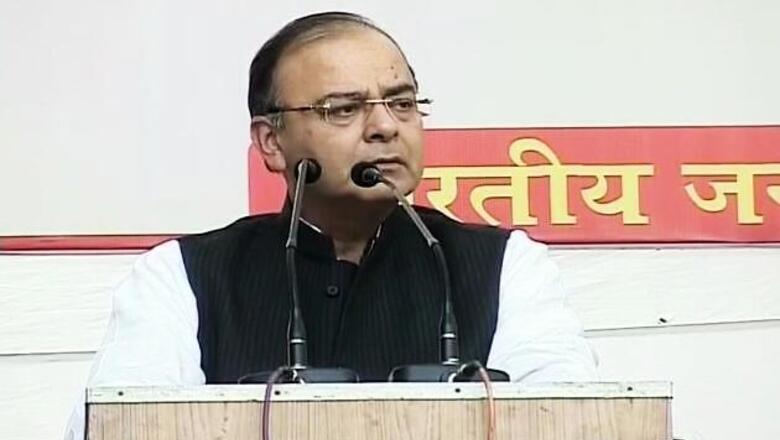
views
New Delhi: Had internet been there, the Emergency of 1975 would have been a "fiasco", said Leader of Opposition in the Rajya Sabha Arun Jaitley on Thursday as the Upper House of Parliament took up a debate on a motion to annul a set of government's rules on internet.
A motion to annul the Information Technology (Intermediaries Guidelines) Rules, 2011, moved by P Rajeeve of the Communist Party of India-Marxist was taken up by the Rajya Sabha in the morning.
The rules, enforced in April 2011, have been perceived largely as an indirect censorship of internet content. The set of rules require that all intermediaries, which includes all those who provide internet, telecom, e-mail or blogging services, and cyber cafes, have to remove content that is "grossly harmful, harassing, blasphemous, defamatory, obscene, pornographic, paedophilic, libellous, invasive of another's privacy, hateful, or racially, ethnically objectionable, disparaging, relating or encouraging money laundering or gambling, or otherwise unlawful in any manner whatever".
Participating in the debate, Jaitley pointed out that the 1975 Emergency would have failed if internet had been there.
"If internet had been in existence, Emergency would have been a fiasco," Jaitley said.
"You can control print and electronic media, but not internet. The circulation would have been so wide, the fear psychosis had been demolished," he said.
Objecting to the government's set of rules for internet, Jaitley said terms such as defamatory, libellous and disparaging could be misused.
"Someone can criticise me or my party; it will be disparaging for me. But do I have the right to say: 'Take it off the (inter)net'? The words the way they are framed have huge possibility of future misuse," he said.
Stating that the content on internet may be defamatory to one person or another, Jaitley also joked that by restricting all that is defamatory, "we will have a very boring internet".
Speaking earlier, Rajeeve pointed out that the rules were a violation of the right to freedom of speech.
"This rule is violation of the Constitution, Article 19(2), which gives freedom of speech... The rules violate principle of natural justice and are ultra vires of the parent act and the constitution," he said.
He also quoted UN rapporteur's report that censorship on net should not be relegated to private entities.




















Comments
0 comment